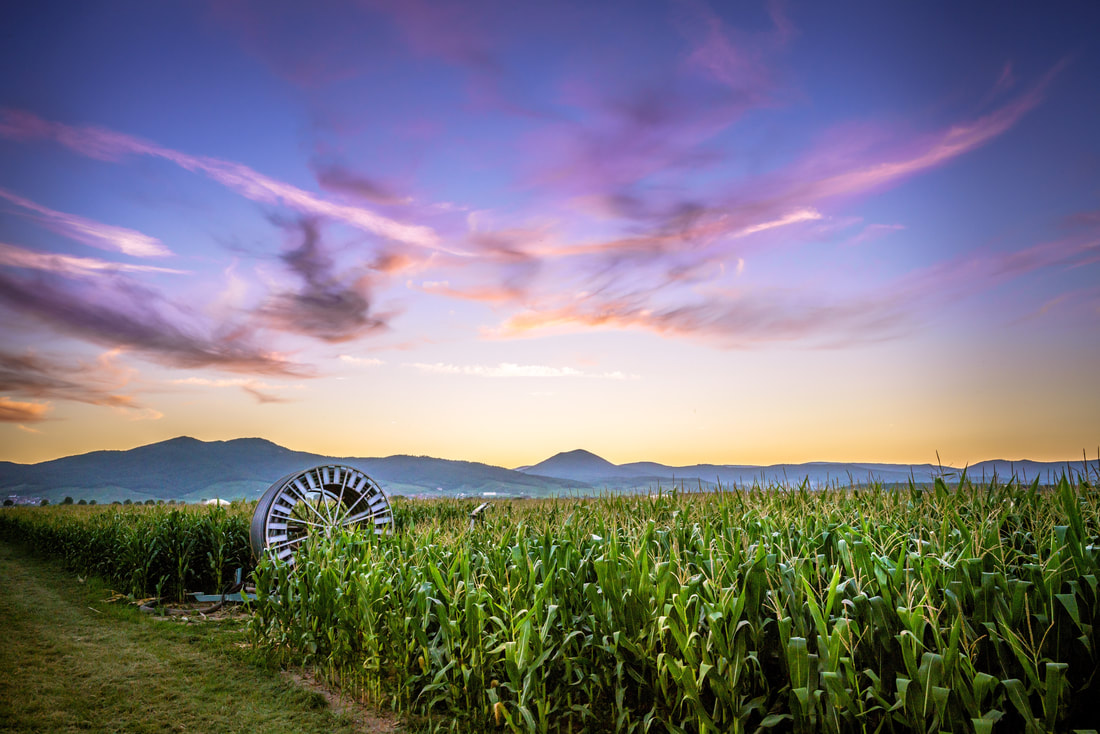|
As a Food Sensitivity Coach, I have had some clients who needed to eliminate corn from their daily diet. As I began my research into what foods contain corn, I was astounded to find that corn is in almost everything, from baking powder, spices to the sugars that are in almost all processed food. It was a real eye opener for me. In prep for my Culinary Nutrition course this fall, I next needed to view a number of documentaries from a list provided. King Corn, the 2007 documentary directed by Aaron Woolf caught my eye right away. The documentary was actually a fun one to watch as it followed 2 recent university grads who decide they want to grow an acre of corn and follow it to market. It seems like a reasonable thing to be able to do at the beginning, but what they found was not quite what they expected. This is August in Ontario and don’t we all love our corn on the cob fresh from the field. This is not the corn we are talking about. The corn we are looking at is the corn that has been designed to the exclusion of all other corn species to be used in big manufacturing, to be used as in animal feed, literally designed to be in our everyday lives. I have to admit I was shocked when they started talking about feed lots for beef cows. I must be naive because I never realized that a beef ‘feed lot farmer’ only owned his cows for 120 days to fatten them up (on corn of course). During their stay on the farmer’s feed lot they don’t have a nice life of wandering in a pasture like I imagined, instead they are confined to a small area waiting for them to reach the right weight to go to slaughter. Fattened on corn is the quickest method to get cattle market ready and I am certain the same remains true for chickens, hogs and other animals that are consumed by the population in general. This method has been developed to produce enough for the demand and make a good profit. My uncle raised cattle on his farm when I was growing up. His cattle came in and out of the barn, wandered in the pasture eating what they chose. He baled hay to feed them in the winter. They weren’t fed corn at all as I recall, but I also remember that he would have his cattle for at least a few years before they went to slaughter not 4 months. He also raised chickens who ran around the yard and terrorized me - but they tasted great when my aunt cooked them. Unfortunately there were always new chickens to keep me running. There is the difference! He could have never made money by today’s standards if each animal had to be fed and taken care of for a couple of years, waiting for it to grow and fatten up naturally on grasses. Next, I thought about the fish I buy. Much of the fish offered today is farmed, and what are they fed but corn! Is that natural for a fish to eat corn? Luckily, I have now found a supply source locally with grass fed beef and free range chickens. And when buying my fish I now look for wild caught from Canada if possible. I think the most concerning thing for me is that big manufacturing has found ways to make corn into cheap sugars to use in the manufacturing of processed foods. High fructose corn syrup is now used less than it was in 2007 as we now know how very bad that type of sugar is for us to consume, but what about what it has been replaced by? Is it better for us? At the beginning of the film, the 2 university students had their hair tested for corn and shockingly enough there was evidence of corn in their strands of hair. Mind blowing right? I think it is safe to assume that if each of us had our strand of hair examined, the researchers would find evidence of corn in our hair as well as a result of the amount we have consumed. How does that happen? If you do an internet search of what foods contain corn or corn by products you will be blown away by the length of that list. (Scroll down to see the products corn may be used in) How many have you consumed on a regular basis? The one thing we all can control today is our food choices and their sources. Today we are all so very busy, that sometimes it is just easier to take what is put in front of us to purchase without thinking about its origin. We eat what our food eats! Food for thought! Helping you explore your world of food. Food Sensitivity Coach and Food Lover Exploring the World of Food
Comments are closed.
|
Details
The Food Sensitivity CoachI am passionate about exploring the world with a view to food allergies and sensitivities. I look forward to sharing with you what I find, from books, blogs and websites to recipes, hacks, inspirations and opinions, join me in a journey to live your best life. Archives
April 2023
Categories |
HoursOpen for consultations 10am to 5pm EST
|
Telephone |
|



 RSS Feed
RSS Feed